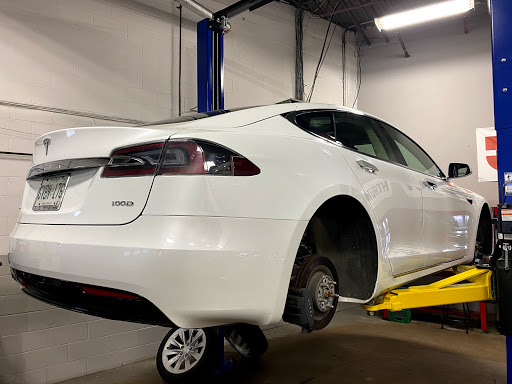
What to Do After a Minor Auto Collision Before You Visit the Shop
Even the most careful drivers in Mississauga can experience a minor auto collision—whether it’s a fender bender in a parking lot or a small scrape in traffic. While these incidents may not seem serious at first, knowing what steps to take immediately after is essential for safety, insurance, and repair purposes.
Many drivers rush to the repair shop right away, but there are important things to do beforehand. In this article, we’ll walk you through the steps to take after a minor collision, what to document, and how to prepare for your visit to the shop.
Why Immediate Action Matters
Minor collisions can be misleading. Even if the damage looks small, underlying issues may affect your car’s safety or performance. Handling things properly at the scene can protect you legally, save money on repairs, and make your visit to the repair shop smoother.
Here are the main reasons why these steps are important:
Ensures your safety and the safety of others on the road
Protects you legally and helps with insurance claims
Documents the true extent of damage for accurate repair estimates
Prevents further mechanical or cosmetic issues from being overlooked
Steps to Take After a Minor Auto Collision
If you’re involved in a minor accident, follow this step-by-step guide before heading to the repair shop.
Step 1: Check for Safety First
Make sure you and your passengers are safe.
Move the vehicle to a safe location if possible, without causing further damage.
Turn on hazard lights to alert other drivers.
Step 2: Assess and Document the Damage
Take clear photos of both vehicles, including close-ups and wide shots.
Note any visible scratches, dents, or broken parts.
Capture details of the scene, including traffic signals or road conditions.
Step 3: Exchange Information
Share contact, license, and insurance details with the other driver.
If witnesses are present, collect their names and phone numbers.
Step 4: Notify Authorities if Necessary
For minor fender benders, a police report may not be required in Ontario if damage is under a certain amount.
However, filing a report at a Collision Reporting Centre in Mississauga is recommended for insurance purposes.
Step 5: Contact Your Insurance Company
Report the incident promptly to your insurance provider.
Provide photos and details to speed up claim processing.
Step 6: Perform a Quick Vehicle Check
Look for leaks, misaligned wheels, or unusual noises before driving away.
If the vehicle seems unsafe, call for a tow rather than driving it to the shop.
Step 7: Prepare for the Repair Shop Visit
Bring all documents, including the police report (if filed), insurance details, and photos.
Make a list of concerns or symptoms (e.g., pulling to one side, unusual noises).
This information helps the shop identify both visible and hidden damage.
Frequently Asked Questions
Do I need to report every minor accident in Ontario?
Not always. If damage is under $2,000 and no injuries are involved, you don’t need to call police on the spot, but you may still need to file a report at a Collision Reporting Centre.
Can I drive my car if the damage is only cosmetic?
If the car drives normally and shows no signs of fluid leaks, misaligned wheels, or unusual noises, it may be safe. However, hidden damage is common, so a professional inspection is recommended.
Will my insurance rates go up after a minor accident?
It depends on who is at fault and your insurance provider’s policies. Reporting the accident is still important for coverage.
What hidden damage should I worry about?
Even small impacts can damage suspension, alignment, sensors, or internal components behind the bumper. These issues may not be obvious right away.
How soon should I visit a repair shop after a collision?
As soon as possible. Prompt inspection prevents minor damage from getting worse and ensures your vehicle remains safe to drive.
Conclusion
A minor auto collision may not seem serious, but taking the right steps before heading to the repair shop is essential. Checking for safety, documenting the scene, contacting insurance, and preparing information will make the repair process smoother and protect you in the long run.
For Mississauga drivers, being proactive after even the smallest accident ensures that both visible and hidden damage is addressed, keeping your vehicle safe, reliable, and road-ready.